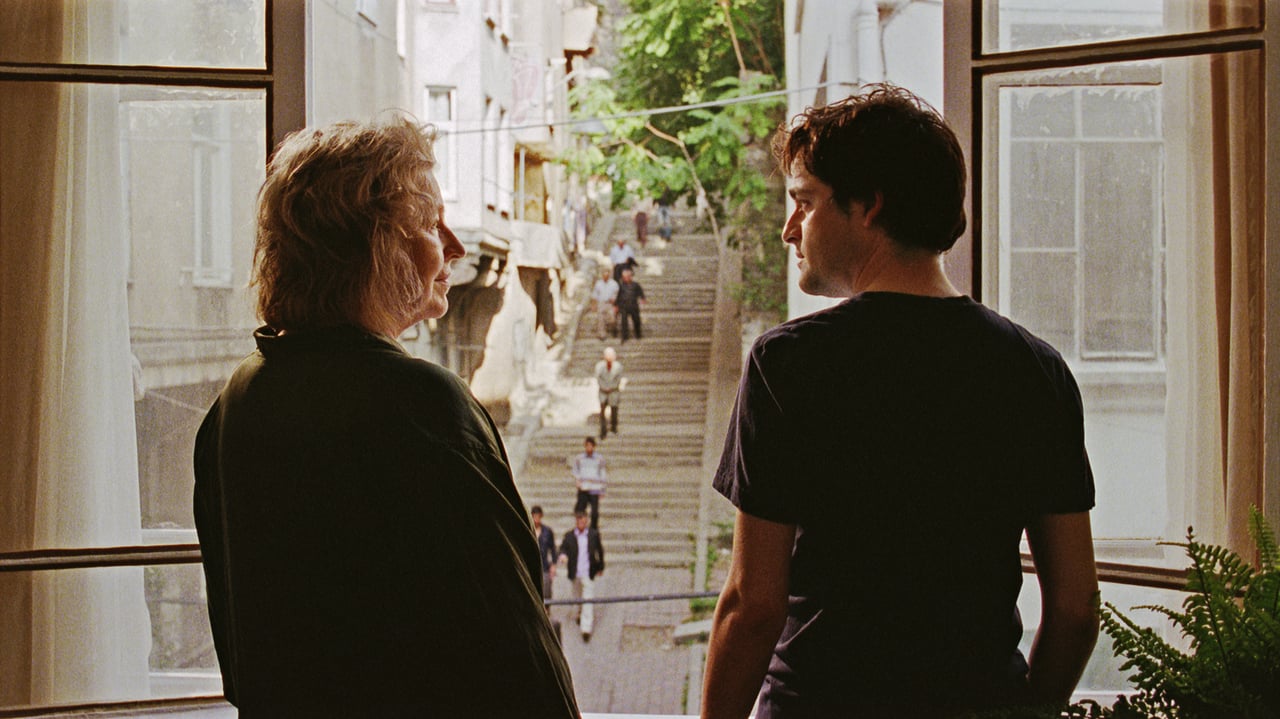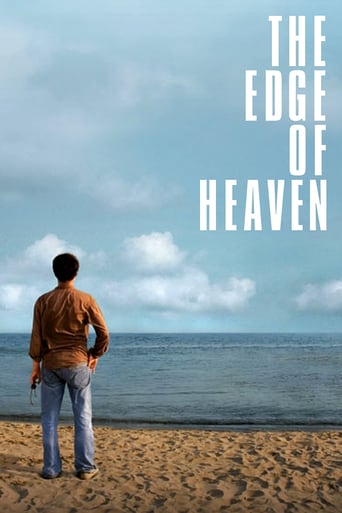

This is one of my favorite movies of all time. "Fatih Akin" succeeded to mix different characters and stories and even cultures to create a superb film that will make you admire the subtle crossroad of the stories evoked in such great dexterity. This movie deals with love, hope and freedom in a unique and clever way - not in a shallow "deja-vu" way.Although there's many different characters, these pieces of the story create a single magnificent puzzle of emotions and stories- one could call it fate. Akin will keep you mesmerized during all the movie with a great cast that radiate energy and truthfulness. you'll certainly be attached to all of them and to all of their stories. The script is very well written and elaborated along with a remarkable cinematography. But what makes you truly fall in love with this movie is for sure the ending. A creative and well thought ending that will not bring much to the story but at the same time will make it so rich and unforgettable. It will keep the story running in your mind and make you wonder about how every meeting with someone, is a crossroad - or even a turning point in your life. I've said earlier that this movie is about love, hope and freedom, but what really this movie is about life - or it is the same thing, isn't it?
... View MoreWas this going to be a keeper or be binned?Its all symmetrically constructed and contrived. A thick interwoven political seam is tying the film tidily too together. Narrative is jigsawed into precisely fitted – i.e engineered – plot pieces. Turkey bits slot into Germany bits and Germany bits get stuffed neatly into the Turkey bits (Lol)When a story gets to be too structured by coincidence it feels artificial. Life – authentic vitally lived life, in the raw, in the real – isn't scripted into tight predetermined plots.Seeing this confirmed a prejudice: the Turkish male attitude towards women (ok, thighbooted Turkish whores) is "I own you" = I'll slap you. Or we'll throw The Koran at you. Typically patriarchal and unsurprisingly chauvinistic. Therefore let Turkish women radicalise themselves, be running amok with guns. And love only women.(male Turkish Professors reading German are excepted, as they've liberated themselves via Goethe )The Turkish/Germany divide is suitably, equally, uniformly, intertwined. Commendable it is. Which is another way of saying worthy. But dull. Ken Loach would be proud.It's in the bin.
... View MoreAside from the outstanding work of the director and whole movie crew, one more thing can be said; the name is "F-a-t-i-h" Akin not 'faith'. And it means "the conqueror" in Turkish. :)Ironically enough it's the name given to F-a-t-i-h Sultan Mehmet Khan after he conquered Constantinapolis and have built a new city over the 7 hills of the metropolis that is "Istanbul". A historic turning point when once an ancient and eastern civilization marked its majestic presence in the west. Since then Turks literally became more and more of western civilization, not by only being influenced by but by influencing, 'manipulating', 'corrupting' and 'contributing' to it. :) Now Fa-tih conquers all cinemas of Europe with the themes in or about Istanbul, themes about east and west, themes of Europe and Asia, themes about Turks, Romanians, Bulgars, Greek and German people... A truly Turkish character, combining, contradicting, fighting or getting along fine with east or west. ;) Truly life and his 'fate' (but not his faith :P) has a solid sense of humor. :) Go F-a-t-i-h the conqueror! ;)P.S. Someone should warn IMDb about the automatic correction feature at least here on this page and have it disabled.
... View MoreAfter his father accidentally kills a prostitute, a Turkish professor in Germany tries to find her daughter to make amends. The film intertwines two plot threads across two countries. Akin, a German director of Turkish descent, shows his understanding of both countries and their cultures, as he expertly balances the parallel stories while invigorating the proceedings with a fresh perspective. Davrak does an excellent job of conveying the decency and compassion of the professor. Also fine are Yesilcay as the prostitute's daughter and Ziolkowska as her friend. Schygulla is particularly touching as a German woman coping with the death of her daughter. It ends rather abruptly.
... View More